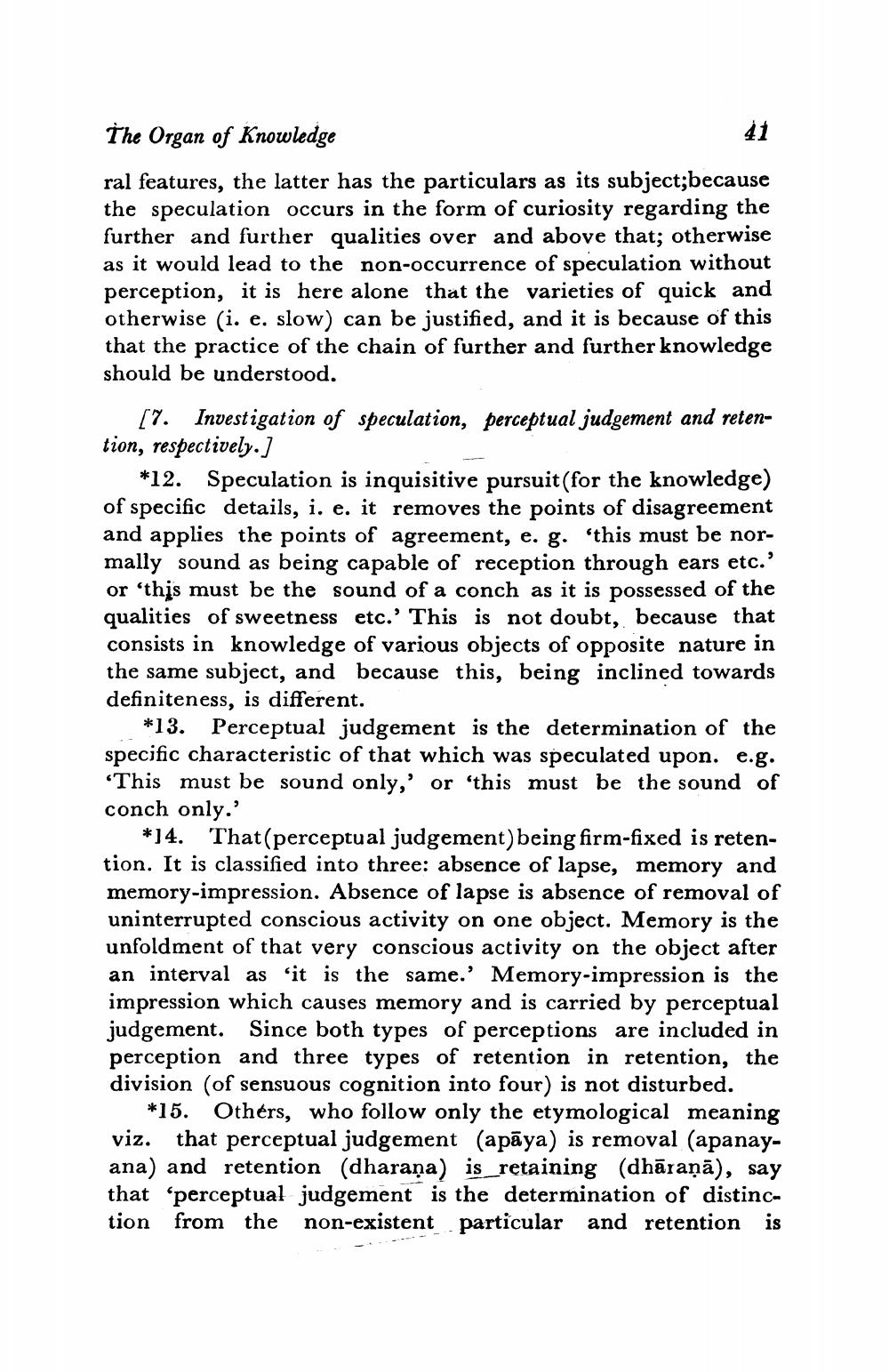________________
41
The Organ of Knowledge
ral features, the latter has the particulars as its subject;because the speculation occurs in the form of curiosity regarding the further and further qualities over and above that; otherwise as it would lead to the non-occurrence of speculation without perception, it is here alone that the varieties of quick and otherwise (i. e. slow) can be justified, and it is because of this that the practice of the chain of further and further knowledge should be understood.
[7. Investigation of speculation, perceptual judgement and retention, respectively.]
*12. Speculation is inquisitive pursuit (for the knowledge) of specific details, i. e. it removes the points of disagreement and applies the points of agreement, e. g. 'this must be normally sound as being capable of reception through ears etc.' or 'this must be the sound of a conch as it is possessed of the qualities of sweetness etc.' This is not doubt, because that consists in knowledge of various objects of opposite nature in the same subject, and because this, being inclined towards definiteness, is different.
*13.
Perceptual judgement is the determination of the specific characteristic of that which was speculated upon. e.g. "This must be sound only,' or 'this must be the sound of conch only.'
*14. That (perceptual judgement) being firm-fixed is retention. It is classified into three: absence of lapse, memory and memory-impression. Absence of lapse is absence of removal of uninterrupted conscious activity on one object. Memory is the unfoldment of that very conscious activity on the object after an interval as 'it is the same.' Memory-impression is the impression which causes memory and is carried by perceptual judgement. Since both types of perceptions are included in perception and three types of retention in retention, the division (of sensuous cognition into four) is not disturbed.
*15. Others, who follow only the etymological meaning viz. that perceptual judgement (apāya) is removal (apanayana) and retention (dharana) is retaining (dhāraṇā), say that 'perceptual judgement is the determination of distinction from the non-existent particular and retention is




